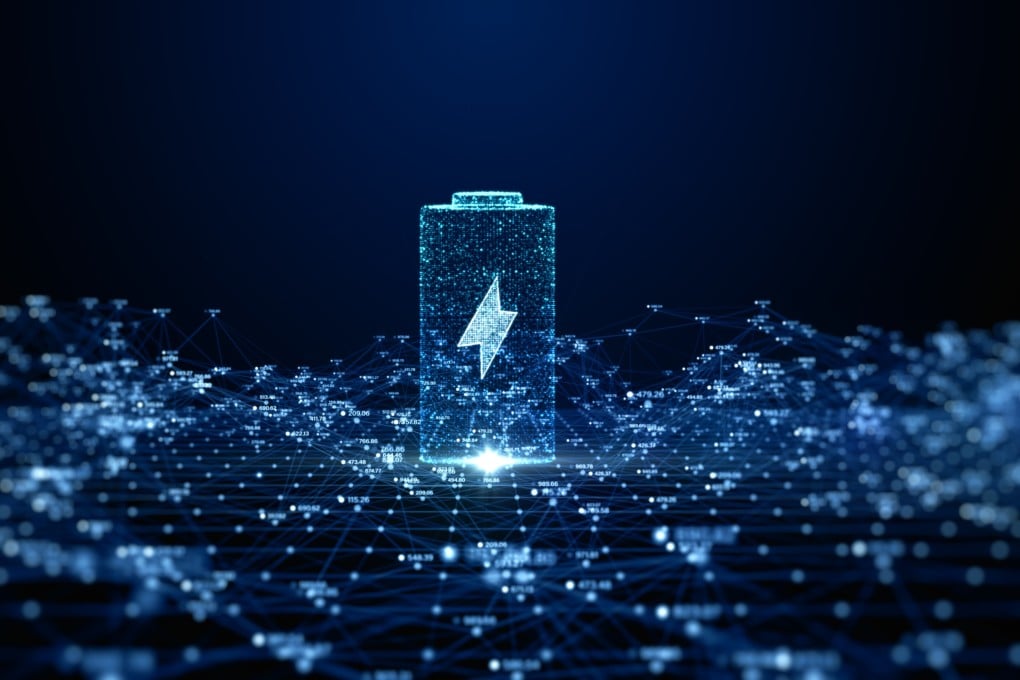Chinese scientists create ‘water battery’ that can hold much more energy than lithium cells: study
- Team’s aqueous battery declared safer than ‘highly flammable’ non-aqueous lithium batteries, according to paper
- ‘Aqueous batteries with high energy density are possible, offering a development option for grid-scale energy storage, and even electric vehicles’: researchers

The iodine and bromine-based aqueous battery had an energy density of 1200 watt-hours per litre (Wh/L) compared to the 700Wh/L of traditional non-aqueous lithium batteries, according to a paper published in Nature Energy on April 23 by the team from the Chinese Academy of Sciences (CAS).
Their aqueous battery was also safer than non-aqueous lithium batteries, which were “highly flammable”, they said.
The stable battery “shows promising potential for the development of next-generation high-energy-density and safe rechargeable aqueous batteries”, the researchers wrote.
Their findings “may expand aqueous battery applications in the power battery field”, said corresponding author Li Xianfeng, a professor at the CAS Dalian Institute of Chemical Physics, who was quoted in a statement from the academy.
Lithium batteries are the standard used across the world because of their high energy density. Traditional lithium batteries contained a non-aqueous electrolyte – a component that allowed the battery to charge and discharge – which was flammable, the paper said.
Aqueous batteries are made up of a water-based electrolyte which does not present the same safety risks.
